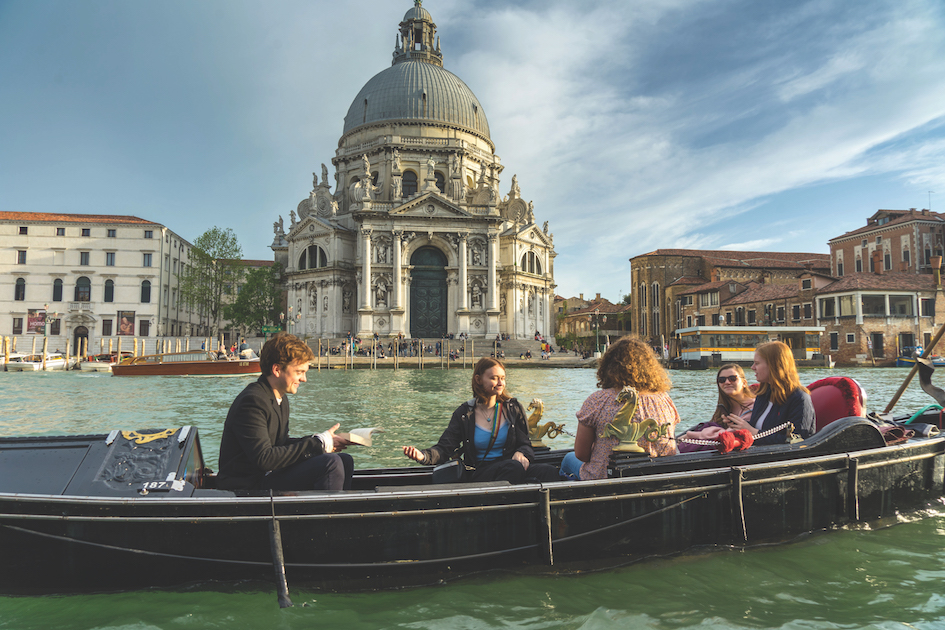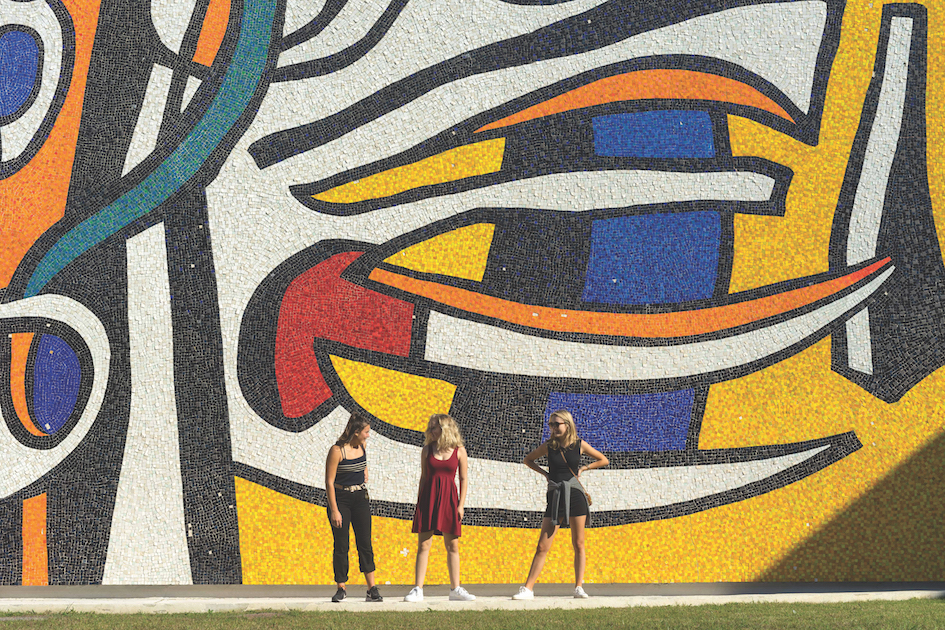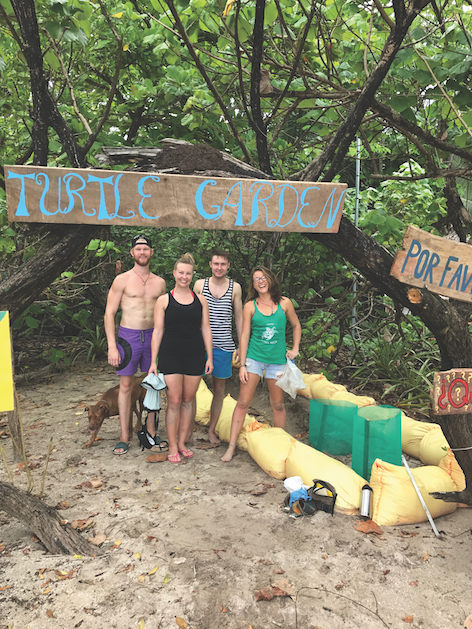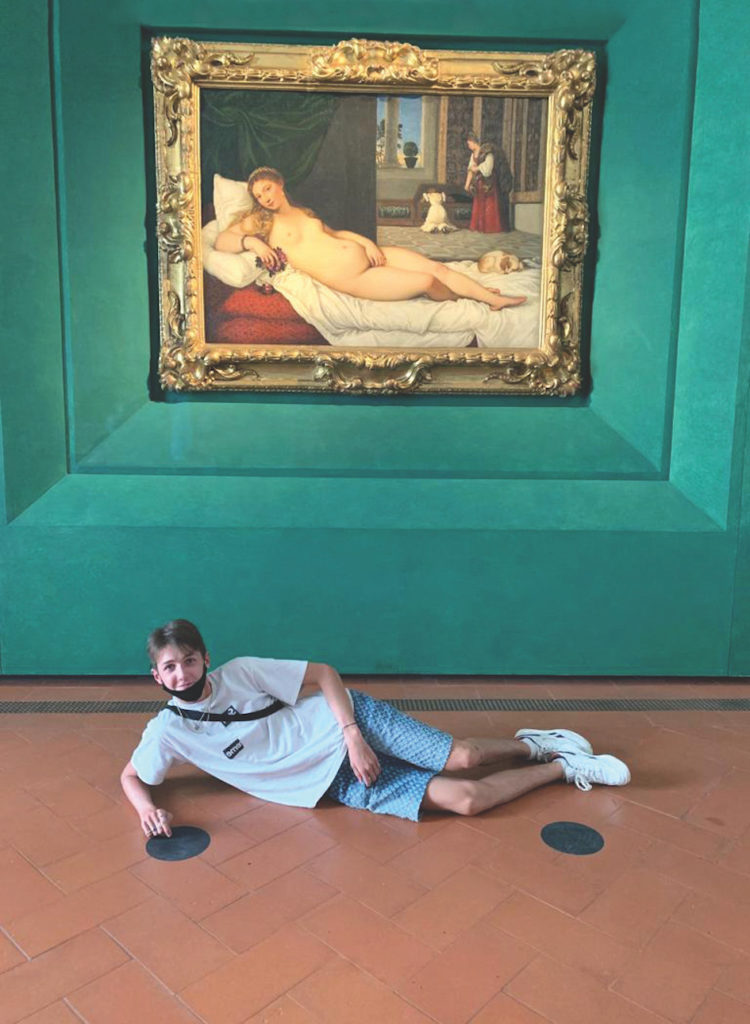Lateral Thinking
By
3 years ago
Two enterprising gap year companies are adapting their provision to provide exciting opportunities for students while supporting their host countries in conservation and the arts, says Annabel Heseltine


Two enterprising gap year companies are adapting their provision to provide exciting opportunities for students while supporting their host countries in conservation and the arts, says Annabel Heseltine
In a time when world news is dominated by Covid, vaccinations and closing travel corridors it feels rash to dream of, let alone plan for, travel in a gap year but just as the buds are bursting out on skeletal bushes, hope is on the horizon and two gap year companies are optimistic about the opportunities opening up for enthusiastic students, desperate to have something to look forward to in a post-vaccine world.
‘It’s all very exciting,’ says Milly Whitehead, co-founder and owner with her husband, Guy, of The Leap, a solutions-orientated company offering travel experiences which combine adventure with planet-protecting projects abroad. While many gap year companies have closed their doors, they have adapted, sending gappers out to far-reaching parts of the world while respecting lockdown rules. Interestingly, as with many other aspects of education, the Covid-19 pandemic has accelerated and highlighted nascent trends.
‘The gap year has undergone a seismic change this year with a huge ripple effect because of a changing culture with an increased emphasis on responsible and sustainable travel and volunteering,’ says Whitehead, whose company is a member of the Year Out Group, a group of gap year companies which set the gold standard in safety and reliability for post school student travel and include Raleigh International, Oyster Worldwide, Ski le Gap, Coral Cay Conservation and Art History Abroad. Each company offers its own brand of opportunities and experience to students looking to build up a better CV of work experience, and of course, to have some well-deserved fun after studying relentlessly for five years for GCSEs, A-levels or Btechs.
Gappers, leaving school committed to climate change and a more sustainable way of life, are volunteering with an enthusiasm which is good news for their destination countries, currently parts of Africa and Central America, says Whitehead. Sadly, for the countries where they are going, the need for their help has only escalated during the pandemic.
Unlike most of western Europe, furloughing safety nets are not available and without tourism, there is no money to pay keepers and support animals in some of the wildlife sanctuaries and parks. Whitehead told me of a park in Costa Rica, Natuwa Wildlife Sanctuary, which provides refuge and protection to wild animals victimised by humans through hunting or removal from their natural habitat. ‘It was a week away from killing all its animals because there was no-one to care for them. Fortunately, we managed to find some gappers who volunteered and we got them out there just in time.’
In Kenya, all research at the Marine National Park just north of Mombasa had come to a grinding halt. There had been no research or work coral gardening since last March. Turtle poaching and plastic pollution was escalating until Whitehead got some gappers out to help. ‘In one day, they picked up 120 kilos of plastic off a beach in Kenya,’ she said.
But as well as an increased appetite for volunteering in a proactive and sustainable way, students are more conscious of their air miles, actively preferring to slow down their travel and concentrate on getting to know one area better. ‘Instead of doing the Asia trail or the South America Express, they are choosing to do one country, really get to grips with it, and to know it much better. It’s more rewarding too. You are living and breathing one culture,’ she adds. At the moment many countries are closed but The Leap is planning travel to Kenya, Tanzania and Namibia in Africa and Costa Rica in Central America for the end of the next lockdown.

In between lockdowns, travel is manageable if one is sensible. ‘We insist that everyone is tested, even if the host country is not demanding it. We quarantine them in a bubble for ten days after the flight and then we just let them get on with doing their bit,’ explains Whitehead.
For more independent travellers, The Leap is also offering a gap year VIP experience as part of its restructuring in response to Covid- 19. In the first month since its inception, 500 applicants paid the £100 joining fee to receive a personal consultancy from Millie advising them on how to travel responsibly and safely, offering advice on laws, regulations and rules in each country and crucially, to ensure that they are properly insured. ‘You pay a fee, set a date and then, in the last three weeks, when we know what’s going on we leap into action,’ explains Whitehead. Gappers are also supported during their travels, with full access to The Leap’s black book of local contacts to ensure that there is someone available in that country to whom they can go if they need help or advice 24/7, which is something of a relief to parents like myself, confronted with the alarming thought of waving goodbye to my two inexperienced 18-year-olds in a year’s time.
Typically, a gap year should be divided up into travel, getting some experience for the CV, some fun, and work. Whitehead advocates that gappers should work from September to Christmas, aiming to make about £300 a week, which sets them up for travel in the New Year. ‘If you are not on a plane in January, you’ll just get depressed seeing all your friends having a wonderful time on social media,’ she says. Then, suggests Whitehead, six months of travelling might start with a few initial weeks with a gap year company to give students the confidence to take off on their own. ‘Most of our gappies come to The Leap and do anywhere between a couple of weeks to two months with us, then they go off and travel independently. We are, quite literally, their stepping stone into the world.’
Vaccinations notwithstanding, we will be living with Covid and the fallout for some time. Poverty and unemployment contribute to less stable travelling environments, so having somebody to keep an eye on their young adults is a consolation for worried parents desperate to give their children, struggling with mixed messages around A-level examinations, something to look forward to.
I know that planning her gap year has lifted my daughter’s mood. A history of art student, she is looking forward to going on the Art History Abroad gap year course provided by Nick Ross, another member of the Year Out Group. This is less about physical adventure but more about broadening the mind and exploring the cultural cities of the Western world which, with vaccination programmes well underway in most of Europe, should be feasible this year. ‘I think we have to plan for the best, but prepare for the worst,’ says Ross, who reinvented Art History Abroad in the 1990s as an experience for students interested in cultural exploration.

When I spoke to him, he was busy preparing for an online lecture on Francis Bacon to past and present students, and then planning
a new two-week course to take advantage of the Venice Biennale of Architecture. These summer courses are popular with Americans or university students wishing to supplement their studies or wanting to spend some holiday time traveling through some of the most beautiful cities in the world with knowledgeable and enthusiastic tutors. About 20 per cent are medical and science students who are not encouraged by universities to take a gap year but still want some experiences in their memory bank and definitely bring a different perspective, says Ross, who is passionate about fostering young talent and encouraging young minds and sharp debate; he makes a point of having young tutors.
But like the Whiteheads, Ross is not unaware of the hardships hitting his host countries. The impact of the pandemic on art and culture across the world is well-versed so AHA’s continued patronage is welcomed with open arms. ‘We are supporting museums and cultural institutions and we were truly welcomed between August and November when others were staying away. When I first made a booking with our hotel in Florence, the woman who owned it wept. But our engagement is not just financial. The museums were so delighted to be showing their artefacts in a rather personal
way that only Italians do. It’s not just a painting for them, but somehow embodies the national soul,’ says Ross who also sponsored the ‘wonderful’ New Generation Festival, which is entirely sung, performed and managed by people under 35 and, as such, is a vital showcase for youth. Taking place in August 2020, the Festival was obviously threatened by Covid but the organisers made it work, mobilizing The Uffizi and using the Boboli Gardens, with acres of space, to put on a successful, yet distanced, opera and concerts.

Gap year students typically spend six weeks on one of AHA’s four gap year courses with approximately 16 to 24 other like-minded souls, a third of whom will be going on to study history, theatre, architecture and the creative arts. One of the most popular is a combined six week cultural immersion in Venice, Florence and Rome held in the autumn, the first trimester of the year and the late spring, but the shorter courses are in Florence and Rome or Sicily and Naples, and Ross is constantly looking for different options.

Unlike an A-level education the courses are not restrictive, while the focus is on the art – and why not? When you are walking on some of the finest examples of a living, breathing stage of art and architecture in the world. But you are as likely to find yourself learning about English poets in Rome, visiting Keats’ house and the English Cemetery where some of the greats are buried before ending back in one of the family-run hotels used by AHA for years to revisit and dissect the rich experiences of the day.
‘It’s all very well studying Leonardo all day but it has to be useful. It’s important that students get into the habit of being creative. You can be creative with a spreadsheet. The wonderful thing about Leonardo da Vinci is that he always looked at a problem differently, turning it upside down and examining it from different angles. I am always trying to get students to understand that it’s not a passive thing to learn about history of art, but about setting up a creative pattern which can run through any future career.’
And fortunately for this year’s beleaguered gap year students and their host countries, this is a lesson which both Ross’s Art History Abroad and the Whitehead’s The Leap have more than taken on board when it comes to designing gap year opportunities in the middle of a pandemic.
Year Out Group
yearoutgroup.org
The Leap*
Trips from £2,500 per month not including flights, dependent upon destination. theleap.co.uk
Art History Abroad
Prices from £10,925 for a six-week gap year course.
The New Generation Festival newgeneration festival.org
*Please note The Leap also offers volunteering trips for mid-lifers if you have had enough of cooking, cleaning and childcare



